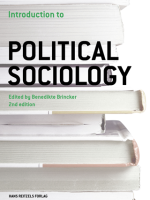Migration and Mobility
Migration has become one of the key questions of our time. Human mobility across borders raises questions about belonging, rights and obligations, citizenship, governance and sovereignty – often difficult questions. Certainly, since 2015 and the so-called ‘migration crisis’ – or ‘the long summer of migration’ – where more than one million people asked for asylum in Europe, migration has moved to the top of political agendas in Europe and internationally.
In a new textbook chapter, DIIS senior researcher Nauja Kleist introduces migration and mobility studies. Drawing on a wide range of theories and studies, Kleist outlines the bigger picture of international migration and discusses what migration is, why it occurs and is sustained, and how it can be analyzed, including push-pull theories, social networks, transnational and diaspora approaches, and the mobilities turn in the social sciences. Written in an accessible language, the chapter targets students as well as other readers who may be new to migration studies but who want to know more.
The chapter is part of the second edition of the textbook Introduction to Political Sociology, edited by sociologist Benedikte Brincker. The book is a state-of-the-art introduction to the broad field of political sociology, with chapters ranging from the historical formation of states and the institutions of welfare states to contemporary societal transformations, such as migration, financial crises, and governance and European integration.
- Climate change and environment
- Defence and security policy
- High-risk migration
- Migration and development
- Migration and border management
- Inequality and poverty
- Development in practice
- Danish and European foreign policies
- History and foreign policy
- EU External Relations
- World politics
- Diplomacy and international organisations
- Peacebuilding and democratization
- Fragile states
DIIS Experts


